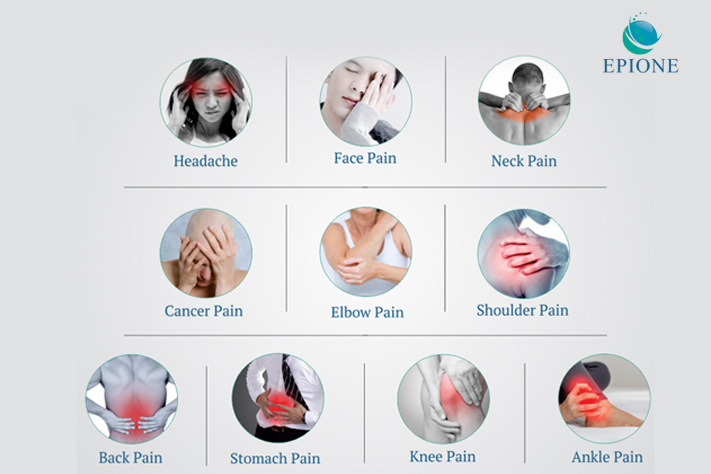HOW TO IDENTIFY HEART RELATED CHEST PAIN

Chest pain is a common problem which frightens everyone. It could be a sign of a serious medical condition that needs to be diagnosed and treated accordingly. It’s always important to know whether this chest pain is from heart, or somewhere else. Many times, people self-diagnose themselves and conclude that the pain is the result of “Gastric Trouble” and try over-the-counter medication until heart attack becomes serious & complicated says " Dr. S.C. Sinha MBBS, MD(General Medicine), DM (Cardiology) Senior Consultant Interventional Cardiologist STAR Pinnacle Heart Centre
(4).jpg) Here are the Symptoms which indicate the chest pain is most likely related to Heart:
Here are the Symptoms which indicate the chest pain is most likely related to Heart:
Chest pain or discomfort which
- Is in centre of the chest & spreads to lower jaw or one/both arms
- Gets better when you rest, but worsens when you move around
- Relieves with Nitroglycerine (Sorbitrate) tablet beneath the tongue
If you experience any of the above symptoms, it is most probably an impending Heart Attack. Do not misjudge it for a Gastric Problem.
Always Remember! A gas problem won’t kill, but a missed heart attack could be lethal.
Many people may not experience chest pain. Instead, they feel breathless. Any breathlessness which comes while walking or doing work needs further evaluation for a potential heart problem. Let’s say, you were absolutely alright, no breathlessness, no chest pain or jaw pain till few days ago. But now, since the past 1 week or so you feel breathless while walking a short distance, or having chest pain or jaw pain while doing so, you need to consult a Cardiologist on immediate basis.
DIAGNOSTICS & DETECTION
Apart from routine investigations, following are the three most important tests to be performed in a person having chest pain at rest or mild exertion:
- Electrocardiogram (ECG): To immediately rule out a major heart attack. However, a normal ECG doesn’t always mean that everything is normal!
- Echocardiogram (ECHO): To look for weakness of heart muscle. A normal Echo doesn’t always mean that there is no heart problem!
- Troponin test (Trop T or I): To further assess by blood test whether there is a heart attack or not.
If all three are normal, it means
- Either the person has Unstable Angina (Chest pain which may still progress to major heart attack)
- Or this chest pain is unrelated to heart
In some cases, it may be required to have two Troponin tests at 6 hours gap for further confirmation.
Exercise Treadmill Test (TMT):
This is suggested in those individuals who have mild symptoms, means they can walk without chest pain for 1-2 kilometres. It is not done in emergency.
Nuclear Stress Test:
This is suggested when TMT comes mild positive or inconclusive, or in persons in whom TMT can’t be done due to some reason.
CT Coronary Angiogram:
This is suggested when TMT comes positive.
Conventional Coronary Angiogram:
This is suggested when TMT is positive, or on emergency basis in heart attack. It is the gold standard test to check for blockage of heart blood vessels.
Remember, not everyone needs an angiogram.
Don’t take new onset chest pain or breathlessness lightly. Avoid self-diagnosis. Never ignore a chest pain occurring at rest. It’s an emergency.
Always consult a cardiologist as soon as possible.
Book Appointment: Dr. S.C. Sinha MBBS, MD(General Medicine), DM (Cardiology) Senior Consultant Interventional Cardiologist STAR Pinnacle Heart Centre

 Disclaimer: Welthi.com does not guarantee any specific results as a result of the procedures mentioned here, and the results may vary from person to person.
Disclaimer: Welthi.com does not guarantee any specific results as a result of the procedures mentioned here, and the results may vary from person to person.









